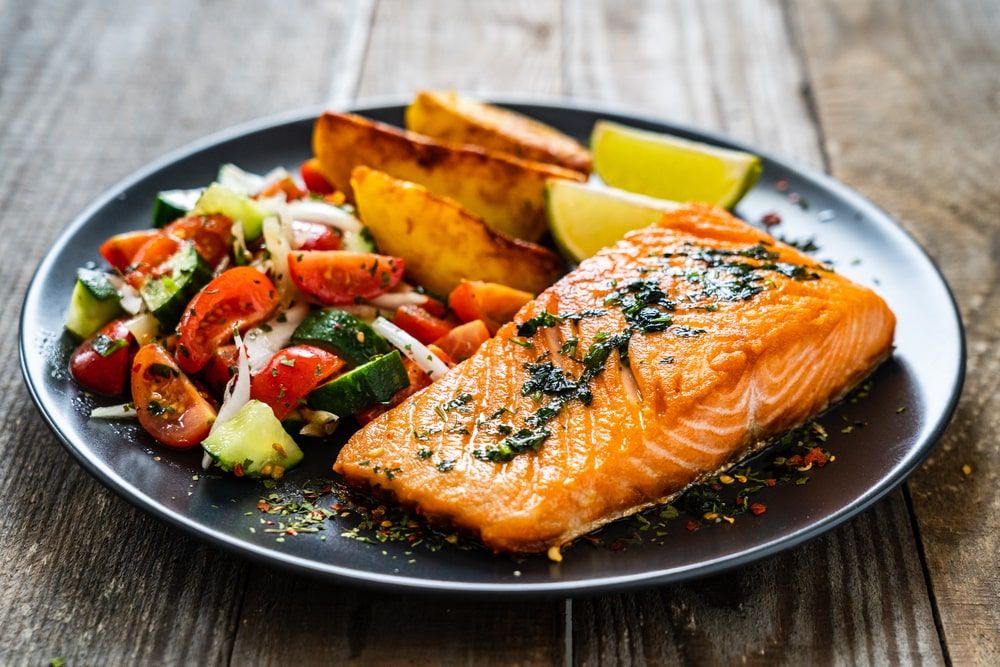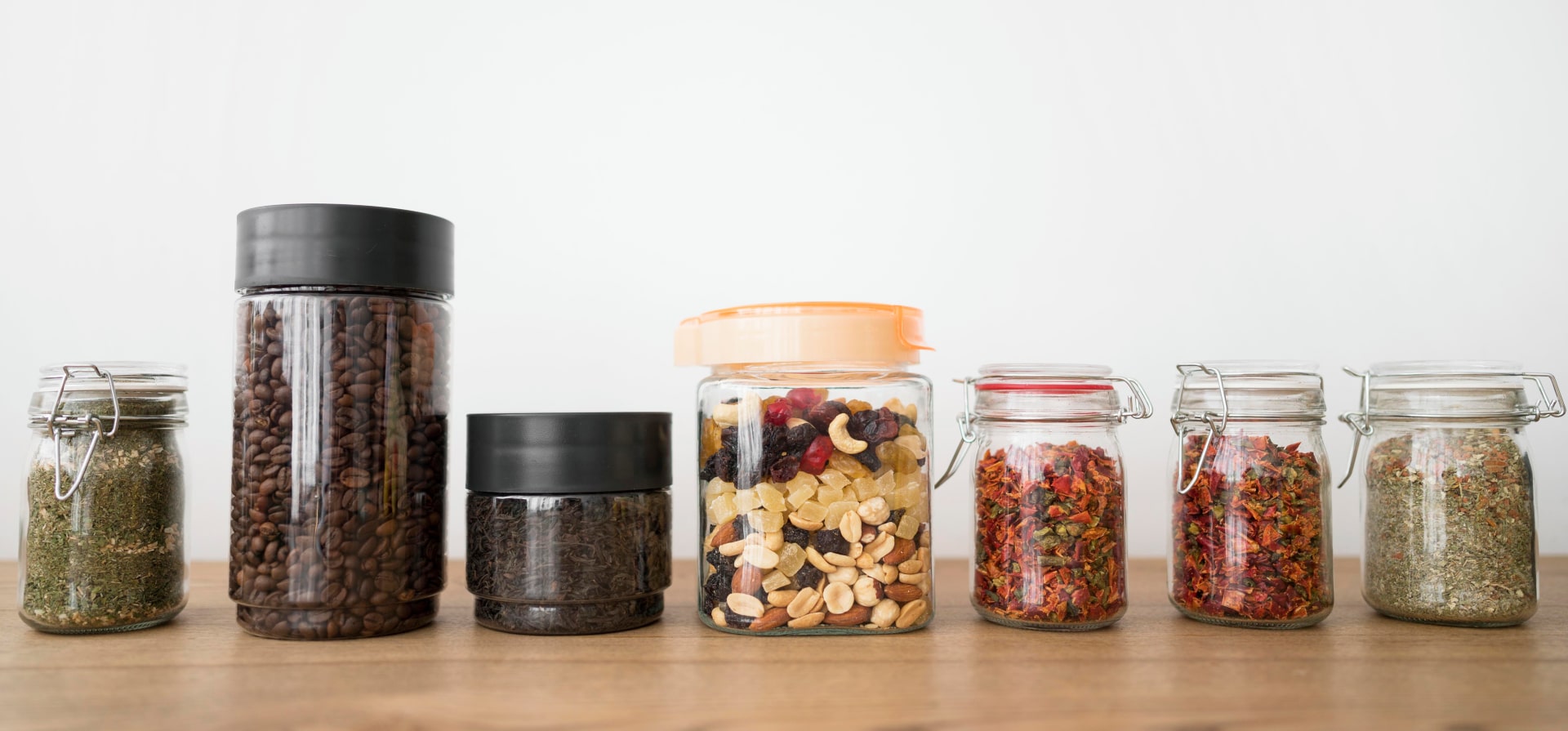Top 10 Best Fertility Foods to Help you Conceive
The food you eat affects your life. It’s not an overstatement! Nutrients from the foods you consume daily to support the foundation and function of every little cell in your body. This impacts your skin, hair, muscles, bones, and digestive systems. So food is pretty important for your overall health. Now, what about nutrition? Are there any foods that make you fertile? Should you be writing down a fertility food shopping list if you’re trying to conceive? Keep reading to find out more!
First things first…
There are lots of fertility myths out there. But, let’s start with the basics: there is no specific food or fertility diet that will automatically improve your chances of conceiving. But, before you roll your eyes in disbelief or, worse, stop reading this article, let’s clarify things. A nutritious and well-balanced diet is still pretty important for your overall health. This also includes reproductive health. So, if you eat certain foods and avoid others, you may improve certain factors that impact your fertility. For instance, one study by Harvard researchers suggests that certain dietary habits can improve ovulatory function.
It’s important to bear in mind that dietary changes are not enough to relieve certain fertility issues. For example, if your fallopian tubes are blocked or your ovaries have been medically removed, unassisted conception is not possible.
With that said, let’s have a look at the fertility-enhancing foods that may improve your health and, in turn, your chances of becoming a parent.
Top 10 best fertility foods
Below are the top 10 best fertility foods that experts and dieticians recommend. If you have any allergies or health conditions, consult a doctor before integrating the following foods into your diet. After all, everyone is 100% unique and there’s no all-size-fit approach to fertility or health. With that said, it’s time to start writing down your fertility shopping list!
1. Nuts and seeds
Nuts and seeds should be part of any balanced diet. They supply the body with important nutrients for fertility, including plenty of protein, minerals, fiber, and essential fatty acids. If possible, consume nuts and seeds in their raw form. This way, all nutrients will stay intact. However, bear in mind that some people may experience digestive issues after eating raw nuts and seeds. Try the following:
- sunflower seeds,
- flaxseeds,
- chia seeds,
- hemp seeds,
- almonds,
- walnuts,
- and peanuts.
2. Dark leafy greens and fruits
Next on your fertility list are fruits and veg. A study by the Harvard School of Public Health found a link between diet and fertility. The study looked at nearly 18,000 women. Women who ate more trans fats, sugar from carbohydrates, and animal proteins presented a higher risk of ovulatory disorder. If this sounds familiar, make sure your plate is full of dark leafy vegetables and fruits.
Dark leafy vegetables are packed with minerals, antioxidants, and vitamins essential to healthy fertility like iron, folic acid, B Six, and vitamin E. So make sure to eat more spinach, Swiss chard, kale, and collards. When it comes to fruits, you should get more prunes, pomegranates, citrus fruits, raisins, blueberries, and strawberries.
3. Fish and shellfish
Studies show that couples who regularly eat seafood have more sex and conceive faster. Shellfish like oysters have been linked to stronger libido. Why? Because they are rich in zinc, a mineral that boosts testosterone. In addition, seafood and omega-3 fats may increase the chances of ovulation and improve sperm quality and quantity.
While seafood may be beneficial for fertility, it comes with its cons. Some fishes may contain high quantities of mercury. Too much mercury in your bloodstream can negatively affect your baby’s development. To be safe, eat 2 to 3 servings a week of the following fish:
- salmon,
- oyster,
- scallop,
- shrimp,
- cod,
- crab,
- flounder,
- and tilapia.

4. Liver
Cow’s liver is loaded with fat-soluble vitamins, including vitamin A and vitamin B12. Vitamin A is important for your immune system and fetal development. Vitamin B12 supports the formation of red blood cells and DNA. In addition, the liver is rich in iron, which helps to prevent anemia.
5. Lentils and beans
Don’t underestimate these little powerhouses! Lentils and beans are wonderful sources of fiber and folate. Both these nutrients can help you maintain a healthy hormonal balance. Lentils and beans can also promote healthier ovulation as they are loaded with protein.
6. Dairy
If you consume dairy and can tolerate it, opt for full-fat dairy products. Studies show that women with a low-fat dairy intake are at higher risk of ovulatory infertility. Dairy is also rich in important vitamins, such as vitamins A, E, D, K, and K2. You may want to try whole milk, cream cheese, and Greek yogurt.
7. Grains
Whole grains provide energy and help regulate blood sugar. They are excellent sources of fiber and B vitamins. Studies link whole grains to the reduction of insulin resistance and obesity. Both of these imbalances can impact your fertility. Try:
- quinoa,
- barley,
- millet,
- spelt,
- brown rice,
- and buckwheat.
8. Egg yolks
Egg yolks used to have a bad reputation due to fears of high cholesterol. Nowadays, nutritionists are embracing egg yolks for their supply of iron, zinc, calcium, folate, and vitamins A, D, E, B6, and B12. And there’s more! Egg yolks are sources of lean protein. This is good news since lean protein is beneficial for both female and male fertility.
9. Lean beef
Speaking of protein, let’s talk about lean beef. In addition to fish, you can get your protein from chicken, pork, and turkey. All of those are amazing sources of protein, zinc, and iron — key nutrients for a healthy pregnancy.
10. Extra virgin olive oil
Technically speaking, olive oil isn’t “food”, but we do use it to prepare our meals and season our salads. Olive oil contains monounsaturated fats, which help reduce inflammation in the body. In turn, this can aid regulation and general fertility. Olive oil is also rich in antioxidants, vitamin E, and omega-3 fats.

Interested in fertility-enhancing foods?
Now that you’ve learned about the top 10 best fertility foods, why not go deeper? Check out Beginning.com’s Nutrition and Fertility masterclass. We introduce you to the basics of nutrition for fertility, from key nutrients to “superfoods”, and practical tips to optimize your body for conception.

